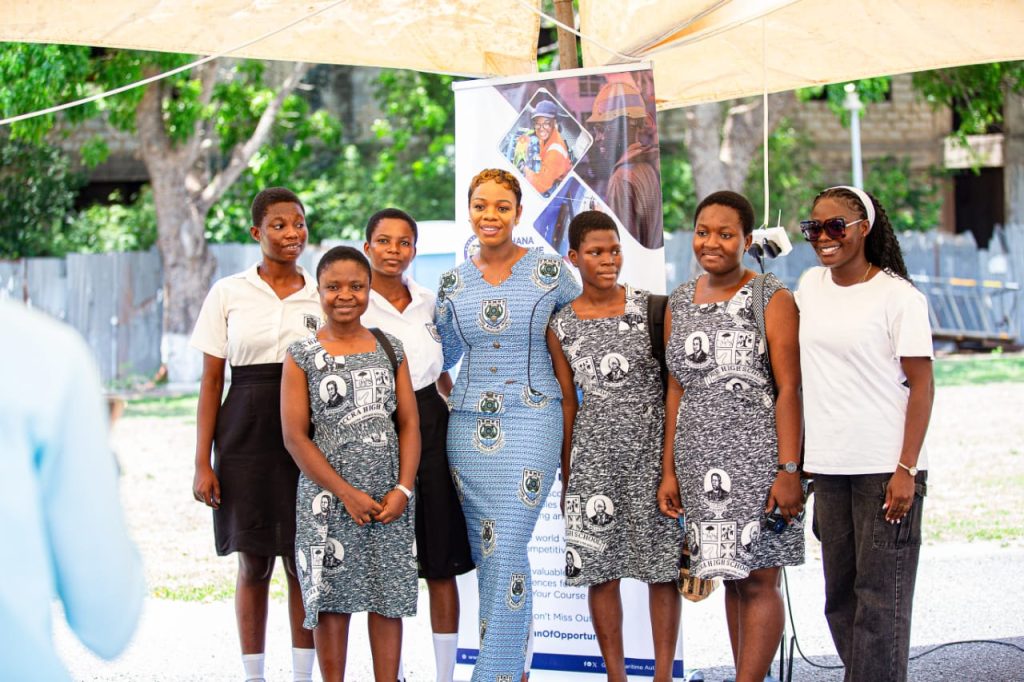By Morkporkpor Anku
Accra, April 8, GNA – Madam Sandra Larbi, the Chief Executive Officer of World Recruit Services Limited, says the future of Africa’s maritime industry is not only about reducing emissions but creating new opportunities for young professionals.
She said the skills the young professionals acquired would define the role Africa plays in the global decarbonization movement.
Madam Larbi was speaking at the Educational and Career Fair organised by the Regional Maritime University (RMU) in partnership with the Ghana Maritime Authority (GMA) in Accra.
The event was on the theme: ” Guiding Tomorrow’s Leaders to Career Choices in the Maritime Industry.”
Speaking on the topic: “The Role of Global Effort to Tackle Climate Change,” he urged these professionals to seize the moment to position Africa not just as a participant in global shipping but as a leader in sustainable maritime trade.
Madam Larbi said Africa stood at a critical crossroads in the fight against climate change, one of the most vulnerable regions, yet one of the most essential players in driving a global solution.
She said with over 56 per cent of its Gross Domestic Product tied to maritime activities, the need for decarbonization was not just about the environment, it was an economic necessity.
The CEO said Africa was pivotal because it held unique advantages like rich biodiversity, strategic coastlines along global shipping routes, and abundant renewable energy resources such as solar, wind, and hydro.
“These assets position Africa not just as a participant, but a leader in the journey toward a cleaner, greener maritime future,” she added.
She said current challenges include heavy reliance on fossil fuels, vulnerability to climate change, high initial cost, regulatory gaps, limited access to climate finance and lack of skills and expertise to operate and maintain clean and renewable energy technology.
She said ports were essential hubs for trade and logistics, but they were also major energy consumers and emitters of CO2.

Madam Larbi said African ports must transition towards green ports infrastructure, which includes onshore power supply, hybrid and electric port equipment, and green hydrogen production.
She said Africa must transition from heavy fuel oil to cleaner fuels to align with the International Maritime Organisation’s target of reaching ZnZ and reducing GHG emissions from shipping by 50 per cent by 2050.
She called on the management of RMU to update the University’s curriculum to include renewable energy, green shipping technologies, and climate policy.
The CEO encouraged student participation in IMO decarbonization programmes, case studies, and simulations.
She called for collaboration with companies focused on green shipbuilding, fuel efficiency, and marine technology and to create internship pipelines that placed students in real-world sustainability projects.

Madam Larbi also encouraged students to innovate solutions like waste-to-energy models for ports and smart fuel monitoring systems.
She urged the management of RMU to establish a student-led center focused on climate-smart maritime innovations.
“They should conduct research on low-emission vessel designs, coastal ecosystem protection
Climate risk mapping in African ports,” he added.
Dr Jethro W. Brocke, Vice-Chancellor, RMU said the fair aimed to connect their students and prospective students with industry professionals to explore opportunities in the maritime sector.
He said they would provide them with invaluable insights into the skills, qualifications, and experiences required to succeed in the maritime sector.
He said engaging with professionals, gaining practical knowledge, and finding the right roles within the industry, “you will be better equipped to make informed decisions about your future career.”
The Vice-Chancellor said the University would continue to serve using its specialised skills to impact maritime education and training knowledge to its students and other participants, who choose to enroll to benefit from its rich fountain of knowledge.
GNA
CA